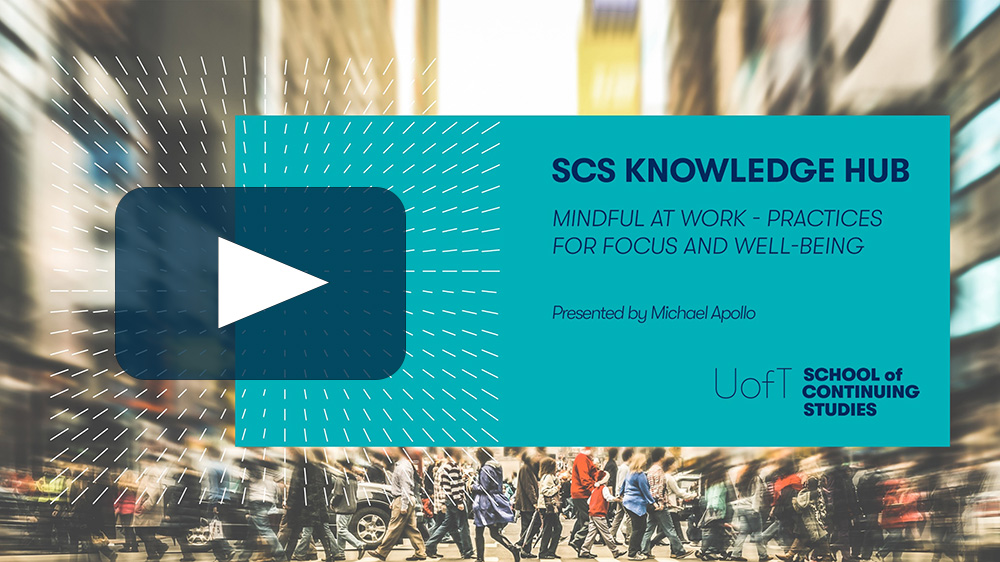
How one learner used her Digital Strategy and Communications Management certificate to help her transition to a new career.
Megan Fleming had her eye on a new career pathway when she decided to register for the first course in the School of Continuing Studies Digital Strategy and Communications Management certificate.
“I really wanted to increase my skills and expertise in digital communications strategy and social media beyond my experiences in using social media personally and on a volunteer basis. I was looking towards transitioning into a different role on my team if it were to become available or find another similar role at U of T in Communications & Knowledge Translation,” she explains.
Her manager was fully supportive of her desire to add new skills to her resume, seeing the potential benefit to both Fleming and the team she worked with, and encouraged her to take advantage of the courses available through SCS.
Sure enough, Fleming has been able to use the knowledge she acquired through her SCS courses as she made the transition from Research Administrative Assistant to Communications & Knowledge Translation Officer.
“This role is way more up my alley, and I feel confident and prepared to fulfill its responsibilities thanks to a lot of what I learned through this certificate,” she says.
“I’m still learning as I go, but I constantly find myself returning to my course notes to support my work.”
For Fleming, one of the most valuable takeaways of the certificate came early in the first course: that her storytelling didn’t always need to be perfect to be effective.
“As part of my course, Foundations of Digital Communications Strategy & Social Media, I was to create my own website, blog, and, optionally, podcast. I’m a keener, so I challenged myself to start my first podcast at the intersection of health promotion and communications,” she shares.
“This course truly encouraged me to just get the episodes out there, but I was able to learn as I went about how to do so strategically. While I’m still thinking about what the future of this podcast holds, I’m so thankful for the push from this course to get me to try out a different communications medium.”
In fact, Fleming says trying her hand at podcasting wound up being some of her favourite coursework.
“I started my own podcast entitled Holding Healthy Space, which was all about communicating about health and social issues in a transparent, respectful, equitable, and empowering way,” she says.
“I was able to connect with a friend who works as a boundaries and burnout coach to chat about her work and how to hold space on social media for self-proclaimed people-pleasers and overachievers, and I developed and shared a whole episode about how to encourage our loved ones to engage in healthier behaviours, sharing a framework with the audience to keep in their health communication toolkit when holding healthy space. This project was so rewarding and fun!”
The biggest challenge Fleming came across in completing her courses was simply to carve out the time, but she says that assignments tailored to learners’ choice of topics meant she really looked forward to doing her homework. She believes the certificate in Digital Strategy and Communications Management could be useful to anyone wanting to be on top of the latest trends in social media and digital communications, particularly emerging communications specialists or anyone using digital communications and social media as part of their work.
Based on her experience, Fleming shares her advice for other people exploring lifelong learning at the University of Toronto:
“Find ways to make it exciting for you, and if you can’t, it might not be for you! There’s always a way to bring in a personal touch into the assignments or find ways to apply the teachings to your own work.”













